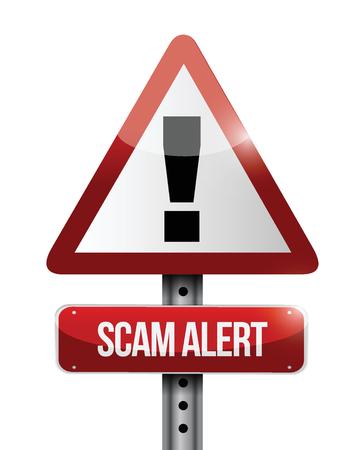 As the COVID-19 pandemic drags on, consumers need to beware of more than just catching the virus. An ever-growing list of Coronavirus schemes and scams aimed at profiting off the pandemic at the people’s expense can cause almost as much trouble as the virus.
As the COVID-19 pandemic drags on, consumers need to beware of more than just catching the virus. An ever-growing list of Coronavirus schemes and scams aimed at profiting off the pandemic at the people’s expense can cause almost as much trouble as the virus.According to this list compiled by Quackwatch, these scams come in a wide variety, from testing scams to mask exemption card scams.
For example, for those of us who are still having trouble finding disinfectant sprays and wipes, a whole cottage industry of supply scammers has sprung up. These scammers claim to have all of the in-demand products and are quick to take your money but never deliver the actual products. Consumers are warned to check online reviews of any company offering COVID-19 products or supplies and avoid those with negative reviews.
Prevention scammers are everywhere. Almost as soon as COVID-19 appeared on the scene, alternative medicine scammers began to hype a variety of dietary supplements, essential oils, herbal or homeopathic products they claim can be used to prevent the disease by “supporting” or “strengthening” the immune system. These claims are without any scientific support. The FDA is providing consumers with an updated list of more than 100 products that are being erroneously marketed as a cure, treatment, or prevention for COVID 19. Please check this list before investing your money – and your health – in any of these products!
COVID-19 Test scammers are selling fake at-home test kids or even going door-to-door performing fake tests for money. As the FDA states, “Currently, the only way to be tested for COVID-19 is to talk to your health care provider.” As of this writing, the FDA has not authorized any COVID-19 test to be completely used and processed at home.
Mask exemption cards are another hot item. These cards, which often sport a bogus government agency seal, claim that the card-holder has a disability that prevents them from wearing a mask. Consumers need to be aware that no government agency is issuing such a card.
Mobile app scams have become quite popular. These scams come from people claiming to be contact tracers who offer a mobile app to track the spread of COVID-19. However, these “apps” are designed to insert malware into the consumer’s device in order to steal personal information. The FTC offers many tips for how to protect yourself against these scams.
Telemedicine fraud is also on the rise with scammers cold-calling consumers to offer free telemedicine visits in an attempt to get insurance information they can use to submit false insurance claims. Only participate in a telemedicine visit with a doctor you know. If you have participated in a telemedicine visit with a doctor you don’t know, and find suspicious claims on your insurance after one of these visits, contact the Coalition Against Insurance Fraud to file a report.
COVID-19 charities are yet another area that have become a gold-mine for scammers. They often use names similar to existing charities, or official looking government seals, to trick consumers into making donations. Consumers are advised to research any charities or crowdfunding sites soliciting donations in connection with COVID-19 before giving. This page offers additional tips on avoiding charity frauds.
For an idea of how just how prevalent these schemes are becoming, a recent Quackwatch report found that US government agencies such as ICE and Homeland Security have opened more than 300 investigations and seized over $3.2 million dollars in illicit proceeds from scammers. They have made 11 arrests, executed 32 search warrants, analyzed over 19,000 COVID-19 domain names and helped to seize 494 shipments of mislabeled, fraudulent, unauthorized or prohibited test kids, treatment kits, homeopathic remedies, personal protective equipment (PPE) and purported anti-viral products.
In addition, the Security and Exchange Commission has suspended trading in 27 companies for making misleading claims, and the FTC has posted warning letters that have been sent to 306 companies allegedly selling unapproved products by making deceptive or scientifically unsupported claims about their ability to treat or cure COVID-19.
To find out what COVID-19 scams are most prevalent in your area, visit the FTC’s Consumer Information website.
© All Rights Reserved, Living His Life Abundantly®/Women of Grace® http://www.womenofgrace.com
